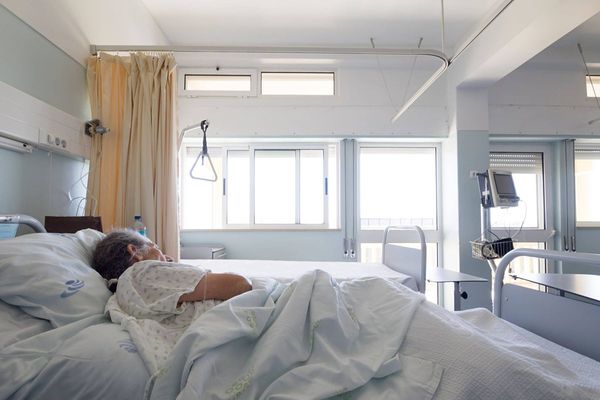Coronavirus cases have dropped in the UK after climbing between September and early October.
Diagnoses went down by 12% in the week up to October 15, compared to the previous week. Although that coincided with a 5.8% drop in testing rates too.
A fresh booster jab round is under way to protect over 50s and the vulnerable from Covid-19 this winter. But since April, there has been no requirement to isolate or quarantine if you test positive for the virus.
Read more: Covid entry rules for popular tourist destinations in Europe and further afield
That was replaced with advice - not a requirement - to "try to stay at home and avoid contact with other people for five days following the day of their positive result".
But what does that mean for work? Do you still have to go if you test positive for Covid-19?
You don't have to stay home, but you can.
Do I have to go to work if I've tested positive Covid?
If you test positive for coronavirus, there is no longer a rule requiring you to isolate or stay at home. But you are advised to stay home if you can.
The Government's UK Health Security Agency says : "If you have a positive Covid-19 test result, it is very likely that you have Covid-19 even if you do not have any symptoms. You can pass on the infection to others, even if you have no symptoms.
"Many people with Covid-19 will no longer be infectious to others after five days. If you have a positive Covid-19 test result, try to stay at home and avoid contact with other people for five days after the day you took your test."
The advice is similar if you have symptoms but have not taken a test.
It reads: "If you have symptoms of a respiratory infection, such as Covid-19, and you have a high temperature or you do not feel well enough to go to work or carry out normal activities, you are advised to try to stay at home and avoid contact with other people."
Before April 2022 there were rules requiring people to isolate. They were told they "must" stay home if they have coronavirus.
Since then they're asked - instead of told - to stay home. So, what does that mean for work?
The UKHSA says - if you feel fit to work - you should "try to work from home if you can", adding: "If you are unable to work from home, talk to your employer about options available to you."
If your boss is insistent that you come in, remember you can call in sick - without a sick note - for up to seven days.
The UK Government says: "Employees can take time off work if they’re ill. They need to give their employer proof if they’re ill for more than seven days."
In a nutshell, you do not have to stay home, but if you're ill - and coronavirus is an illness - then you can stay off work for seven days without a doctor's note.
Whether or not you get paid will depend on your contract, employer and length of absence.
I still feel terrible after seven days, do I have to go to work?
If you still feel too ill to work after a week, you can get a sick note - nowadays known as a fit note - from your GP. Your employer has a right to ask for one if you are absent for more than seven days.
Does my boss have to accept my sick note for Covid or long Covid?
Your employer does not actually have to accept a fit note, but they are playing a potentially risky game if they refuse it.
The DWP states : "The fit note is classed as advice from your healthcare professional Your employer can decide whether or not to accept it, and your healthcare professional cannot get involved in any disputes between you and your employer. You may wish to seek help from a trade union or ACAS (Advisory, Conciliation and Arbitration Service) in such situations."
In advice to employers, the DWP states it "is for employers to determine whether or not to accept it [a sick/fit note]".
If employers reject the fit note stating their employee can not work, they risk going to an employment tribunal.
"Occasionally, you may believe that your employee is not fit for work when they have been assessed as fit for work by their healthcare professional, or you may think that your employee could do some work when they have been assessed as ‘not fit for work’ by their healthcare professional.
"In situations like this you are within your rights to gather other evidence about your employee’s fitness for work from other healthcare professionals. You can choose to give this other evidence precedence over the advice in the fit note. Your employee may disagree with you, and you may need to demonstrate to an employment tribunal why the alternative source of evidence was more acceptable to you than the fit note."
I am vulnerable to Covid-19 and am worried about high rates - do I have to go to work?
If you are immunocompromised or especially at risk of Covid-19, you may feel uncomfortable going to work if rates do soar. You may be entitled to special circumstances to change your work environment if that is the case.
In its Covid-19 guidance for people whose immune system means they are at higher risk, the Department for Health and Social Care states: "If it feels right for you, work from home if you can. If you cannot work from home, speak to your employer about what arrangements they can make to reduce your risk. It may be that you are entitled to a Reasonable Adjustment under the Equality Act."
Read next:







